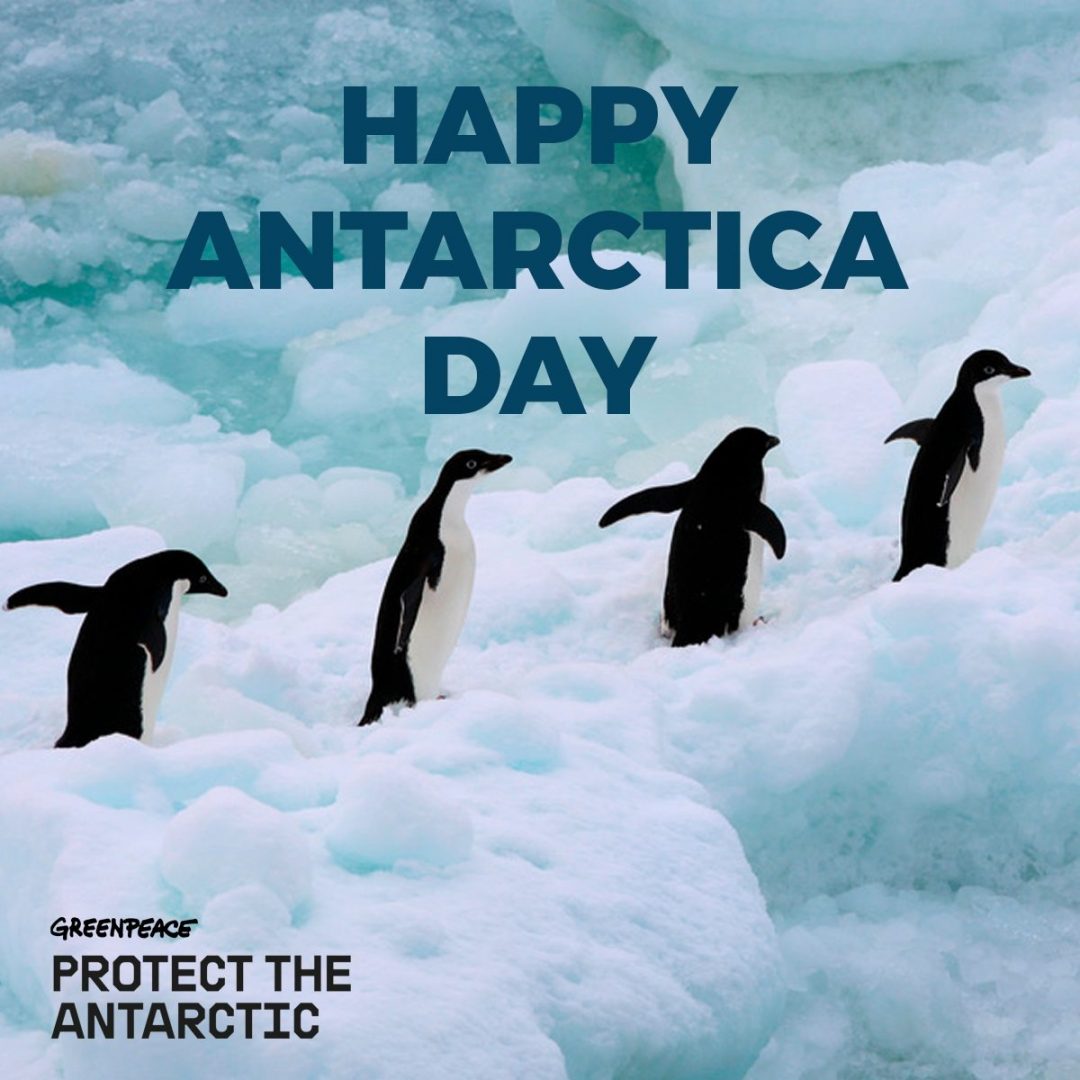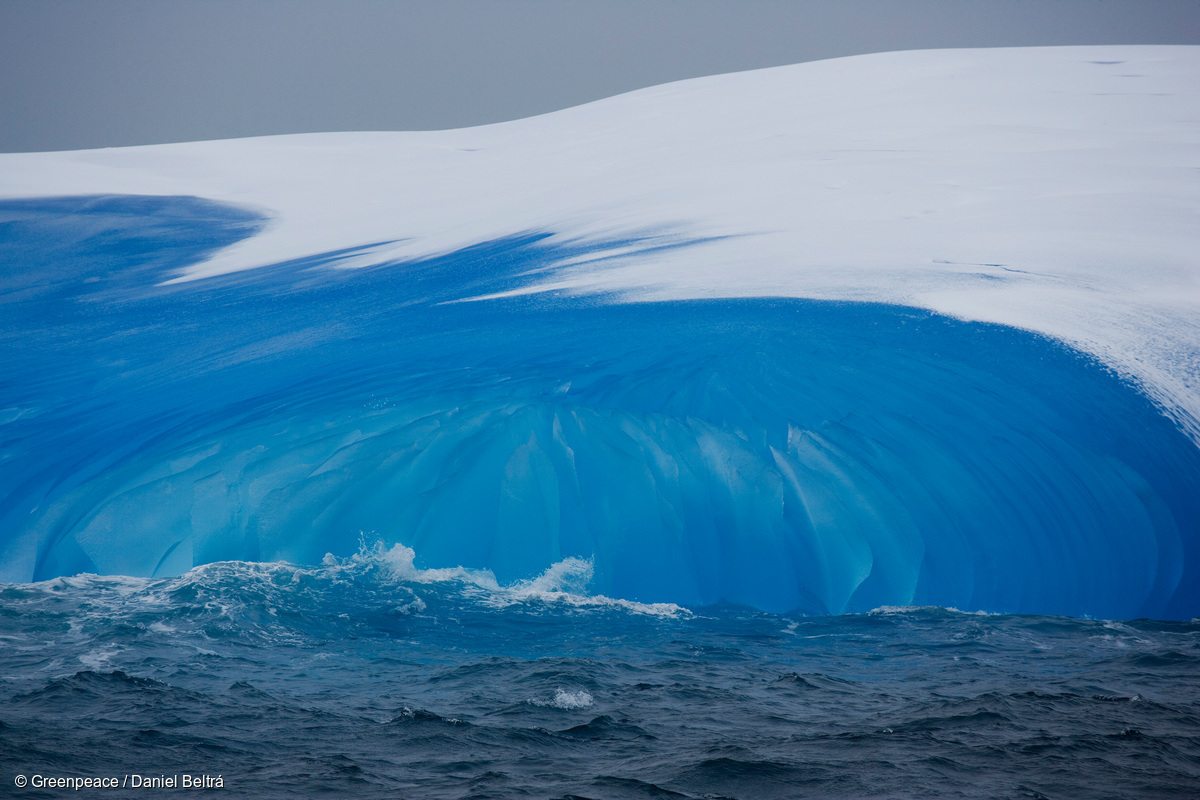Antarctica holds 90% of the freshwater on the planet, is the biggest desert in the world, and is the only continent with no native human population. The encircling Antarctic Ocean not only provides life and living space for amazing, unique and iconic wildlife, but it also influences other oceans and wildlife thousands and thousands of miles away.

However the Antarctic Treaty simply didn’t go far enough in terms of protecting the continent from oil and gas drilling or other mineral exploration – which is where Greenpeace comes in. In 1985, after several years of planning we began a massive campaign to create a ‘World Park Antarctica’. Using a combination of direct actions, solid science and political pressure, we even established our own science base in Antarctica in 1987.
Success eventually came in 1991 when nations agreed an environmental protocol protecting Antarctica, and Greenpeace’s Antarctic base was closed down and removed without trace the same year.
Since then the continent of Antarctica has been protected from exploitation. But sadly the same cannot be said of its life-giving ocean.
Everything in the Antarctic depends directly on the ocean. It provides food, living space, and life itself, yet the creatures that live there have faced a barrage of human threats over the centuries. Massive industrial-scale factory whaling was of course one of the darkest chapters, and it wasn’t until the global ban on commercial whaling, which Greenpeace was integral in achieving in 1982, that the wholesale destruction of these gentle giants that migrate to feed in Antarctic waters every year was tackled. The fight to protect the world’s whales goes on, in tackling climate change, fisheries bycatch, pollution, so called ‘scientific whaling’, and noise disruption.
Fishing takes its toll too, using methods like longlining that catch and kill seabirds and seals, and now the large-scale factory fishing of Antarctic krill, the very basis of the whole region’s food web. Plastic pollution is increasingly reaching every part of our oceans and on top of that the Antarctic Ocean is at the forefront of the first and worst impacts of climate change.
Iceberg on the Ross Sea.
The Greenpeace ship MY Esperanza is on her route towards Antarctica through the icy reaches of the Southern Ocean as part of a 14 month Defending Our Oceans expedition.
It just makes sense that this essential ocean, home to global populations of iconic animals, deserves protection too. Antarctica is nothing without its ocean.
That’s why this year World Antarctica Day gives us both a massive cause to celebrate, and an amazing opportunity to do so much more.
On 1st December 2017 the Ross Sea Marine Protected Area comes into force. This sanctuary, covering 1.5 million square kilometers was eventually agreed last year by the Antarctic Ocean Commission. It’s fantastic news for penguins, whales, seals and all of us – but also a reminder that we need to move much faster to protect these precious creatures and their homes. We urgently need to protect more of our oceans, and it’s not even a funny pun to say that progress until now has been glacially slow.
That’s why in 2018 Greenpeace will be returning to Antarctica, more than 25 years after we dismantled our Antarctic base. We are sending our ship, the Arctic Sunrise, south on a voyage of discovery to the very end of the earth. We are calling for the creation of the biggest ocean sanctuary in the world, to protect the fragile and amazing wildlife in the Weddell Sea, like the irreplaceable penguins, whales and seals that call it home.
But we simply can’t do it without your help. And we want you to come along for the journey!



